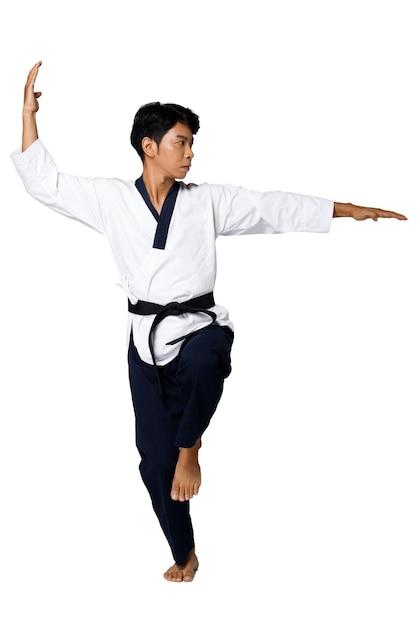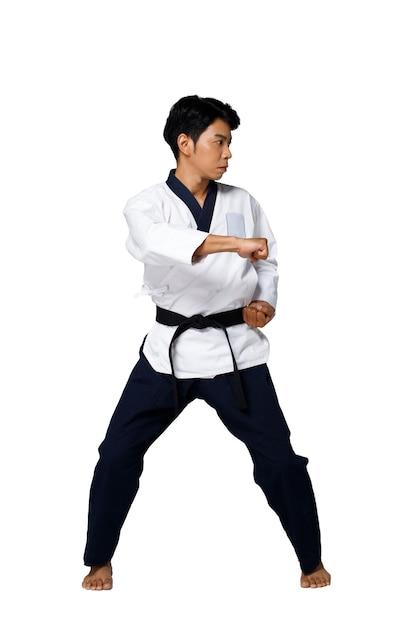Taiwan, also known as the Republic of China, is a vibrant and culturally rich country in East Asia. While the country is famous for its stunning landscapes and delicious street food, Taiwan also has a fascinating martial arts scene. From traditional Chinese martial arts to more modern and eclectic styles, Taiwan offers a diverse range of martial arts for enthusiasts to explore and practice.
In this blog post, we will delve into the world of martial arts in Taiwan. We’ll discuss the various martial arts styles that are practiced in the country, their origins, and their significance in Taiwanese culture. Whether you’re a martial arts fan looking to deepen your understanding or a traveler hoping to experience the local culture, this guide will give you an insight into the exciting martial arts landscape of Taiwan. So, get ready to discover the captivating world of martial arts in Taiwan and embark on a journey of self-discovery and physical prowess!
Martial Arts in Taiwan: Embracing Tradition with a Modern Twist
Taiwan is a land of rich culture, stunning landscapes, and a vibrant martial arts scene. From ancient practices rooted in tradition to modern combat styles, Taiwan offers a diverse range of martial arts that are as captivating as they are effective. In this article, we will explore some of the fascinating martial arts that are practiced in Taiwan, showcasing the country’s commitment to preserving its heritage while embracing innovation.
Tai Chi: Unleashing the Gentle Power
Also known as “Taijiquan”
Tai Chi, often referred to as “moving meditation,” is a martial art that combines graceful movements with deep breathing and mental focus. Its origins can be traced back to the 17th century in China, and over the years, it has become an integral part of Taiwanese culture. Practitioners of Tai Chi perform slow, flowing movements that promote relaxation, balance, and inner peace. Don’t be fooled by its gentle appearance – Tai Chi holds hidden power within its seemingly effortless motions.
Kung Fu: The Art of Strength and Discipline
Also known as “Wushu”
When it comes to martial arts, Kung Fu needs no introduction. Originating in China but widely practiced in Taiwan, Kung Fu encompasses a wide range of fighting styles that emphasize power, speed, and precision. From the iconic Shaolin Kung Fu to the graceful Wing Chun, practitioners dedicate years of training to master their chosen style. With its intricate forms, breathtaking acrobatics, and captivating history, Kung Fu is both an art and a means of self-defense.
Sanda: Kick, Punch, and Move!
Also known as “Sanshou”
If you’re looking for a martial art with a more combative approach, Sanda might be the perfect fit. Combining elements of kickboxing, wrestling, and traditional Chinese martial arts, Sanda focuses on practical skills for both striking and grappling. It’s the martial art of choice for the military and police forces in Taiwan, highlighting its effectiveness in real-life combat situations. So, if you’re up for a challenge and want to unleash your inner warrior, Sanda will definitely get your heart racing.
Taekwondo: Taking Taiwan by Storm
Just as K-Pop has taken the music world by storm, Taekwondo has captured the hearts of many in Taiwan. Originating in Korea, this dynamic martial art has gained immense popularity worldwide for its high kicks, quick footwork, and powerful strikes. With its emphasis on speed, agility, and precision, Taekwondo has become a favorite among athletes and martial arts enthusiasts in Taiwan. So, whether you’re seeking a competitive sport or a discipline to enhance your fitness, Taekwondo is a fantastic choice.
Judo: The Gentle Way
Also known as “Juudou”
Originating in Japan, Judo has found a dedicated following in Taiwan. Known as “the gentle way,” Judo focuses on using an opponent’s strength and momentum against them. It’s not about brute force but instead requires technique, timing, and leverage. Judo practitioners train in throws, grappling, and submissions, making it a versatile martial art suitable for individuals of all ages and sizes. If you’re looking for a martial art that emphasizes strategy and finesse, Judo is an excellent option.
In Taiwan, martial arts are more than just physical activities or self-defense techniques. They are an integral part of the country’s culture, connecting generations and preserving traditions. Whether you’re seeking personal development, physical fitness, or exploring a new passion, Taiwan offers a diverse range of martial arts that will captivate and inspire you. So, put on your training gear, embrace the spirit of discipline and dedication, and embark on an exciting journey through the world of martial arts in Taiwan!
Frequently Asked Questions (FAQ): What Martial Arts Are Practiced In Taiwan
Taiwan is not only known for its breathtaking natural landscapes and vibrant cultural heritage but also for its rich martial arts traditions. If you’re curious about the martial arts practiced in Taiwan, you’ve come to the right place. In this FAQ-style subsection, we’ll address some common questions surrounding the topic. So, put on your virtual black belt and let’s dive in!
What martial art is prohibited in China
In China, the practice of Falun Gong, a spiritual discipline with certain martial arts-like exercises, was banned by the Chinese government in 1999. It is important to note that this ban specifically targeted the spiritual and religious aspects of Falun Gong rather than any specific martial art form.
Is Karate of Japanese or Chinese origin
Karate is a martial art form that originated in the Ryukyu Kingdom, which is now part of modern-day Okinawa, Japan. Although it shares some influences with Chinese martial arts, Karate primarily developed within the Japanese cultural context.
Which country boasts the most powerful martial arts
It’s not about which country has the most powerful martial arts, but rather the skill, dedication, and training of individual practitioners that determine the effectiveness of a martial art. Martial arts are practiced and respected worldwide, with each country contributing its unique styles and philosophies.
Which country offers the best martial arts training
Martial arts training excellence can be found in various countries across the globe. Whether it’s Japan’s disciplined approach to Karate or Brazil’s renowned Brazilian Jiu-Jitsu, the effectiveness of training depends on the instructor and the dedication of the practitioner. The best martial arts training is subjective and varies from person to person.
Which country gave birth to karate
Karate was born in the Ryukyu Kingdom, an island chain that is now known as Okinawa, Japan. It evolved from indigenous Okinawan martial arts combined with influences from Chinese martial arts brought by trade and cultural exchange.
Was tai chi historically employed for combat
Yes, historically tai chi, also known as tai chi chuan, was indeed utilized as a martial art for self-defense and combat. However, over time, tai chi has also become widely practiced for its health benefits and as a meditative exercise.
Which country excels in the field of karate
When it comes to karate, Japan is widely regarded as the birthplace and one of the leading nations in terms of skill and expertise. Japanese karate practitioners have contributed significantly to the development and popularization of this martial art worldwide.
From which country does jujitsu originate
Jujitsu, also spelled as jiu-jitsu, finds its origins in Japan. This martial art focuses on using an opponent’s energy against them, employing a combination of strikes, throws, holds, and joint locks.
Is Tai Chi an ancient Chinese martial art
Yes, Tai Chi or tai chi chuan is an ancient Chinese martial art that emphasizes internal energy cultivation, balance, and gracefulness of movement. It has evolved over centuries and is renowned for its health benefits as well.
Is the practice of Kung Fu banned in China
No, the practice of Kung Fu is not banned in China. In fact, Kung Fu has been an integral part of Chinese culture for centuries. It encompasses a diverse range of Chinese martial arts styles, which are practiced and celebrated throughout the country.
Is Kung Fu superior to karate
The effectiveness and superiority of a martial art depend on various factors, including the individual practitioner’s skill, training, and execution. Kung Fu and karate are both valuable and have their own unique strengths and techniques. It’s not about one being superior to the other, but rather personal preference and dedication that determines their effectiveness.
Why did the British ban Kalari in India
During British colonial rule in India, the British feared the combat prowess and martial spirit of indigenous Indian warriors. Consequently, they suppressed and banned various traditional Indian martial art forms, including Kalari, to diminish any potential resistance and threats to their rule.
Which ethnicity is considered the best fighter
Fighting prowess cannot be attributed to a single ethnicity. Throughout history, individuals from different ethnicities have excelled in various martial arts disciplines. The mastery of martial arts is a result of dedication, training, and personal skill rather than an inherent advantage based on ethnicity.
Which martial art form did Bruce Lee practice
Bruce Lee, the legendary martial artist and actor, primarily practiced Jeet Kune Do. Jeet Kune Do is not a traditional martial art but rather a philosophy and a practical approach to martial arts, developed by Bruce Lee himself.
What is the oldest martial art
While there is no definitive answer to this question, historians believe that the ancient Indian martial art form of Kalaripayattu holds claim as one of the oldest documented martial arts in existence. Its origins date back over 2,000 years.
Why was Kung Fu historically banned
Kung Fu was never historically banned. However, during certain periods in Chinese history, specific rulers or political regimes discouraged or restricted the practice of martial arts to maintain social order and control among the population. These restrictions were not permanent and varied across different dynasties and times.
Which martial art is considered the mother of all martial arts
Kalaripayattu, an ancient Indian martial art form, is often referred to as the “mother of all martial arts.” Its techniques and principles have influenced numerous martial arts systems around the world, including Kung Fu.
Is Tai Chi the most potent martial art
While theories and anecdotes may claim Tai Chi to be the most potent martial art, effectiveness in combat is subjective and depends on various factors like skill, timing, and practical application. Tai Chi’s slow and graceful movements can enhance balance, flexibility, and mental focus, but its potency as a martial art depends on the individual practitioner.
Is Tai Chi related to Kung Fu
Tai Chi and Kung Fu share a common origin in Chinese martial arts. Both systems incorporate elements of internal energy cultivation, breath control, and fluid movement. However, they have distinct forms, training methods, and applications.
Why is Tai Chi practiced slowly
Tai Chi is practiced slowly to emphasize correct body alignment, balance, and relaxation. The slow, deliberate movements enable practitioners to focus on internal energy flow, breathing, and meditation while improving muscle memory, coordination, and sensitivity.
Is Tai Chi like slow-motion karate
Although both Tai Chi and karate are martial arts, they have distinct differences in their forms, techniques, and training approaches. While Tai Chi emphasizes flowing, relaxed movements, karate tends to focus on explosive power and quick strikes. Comparing Tai Chi to slow-motion karate can be misleading, as each martial art has its own unique characteristics and objectives.
Now that we’ve answered some of the most frequently asked questions regarding the martial arts practiced in Taiwan, you’re ready to explore the fascinating world of Taiwanese martial arts. Remember, whether you’re seeking self-defense skills, fitness, or a deeper understanding of martial arts philosophy, Taiwan offers a diverse range of martial arts experiences to suit your interests. Embrace the discipline, dedication, and tradition, and let the journey begin!

